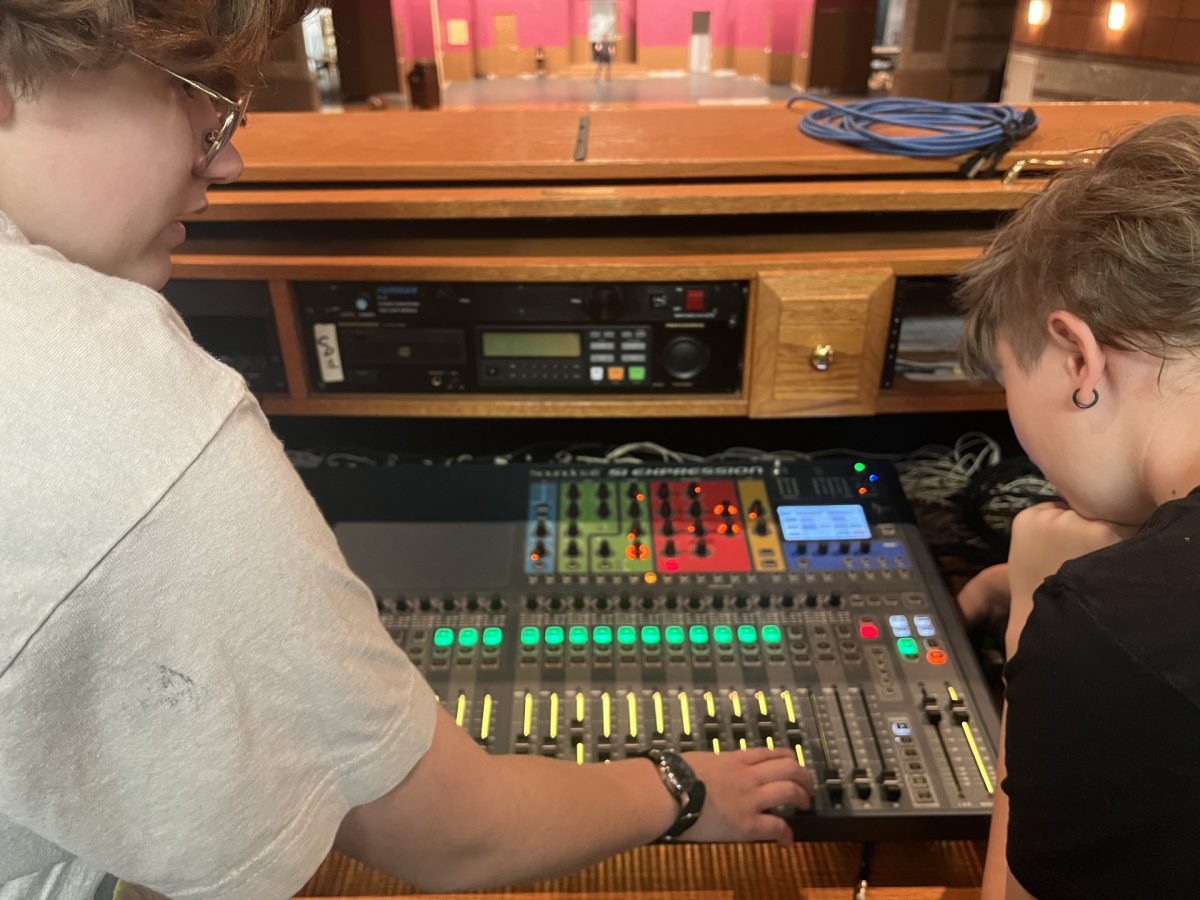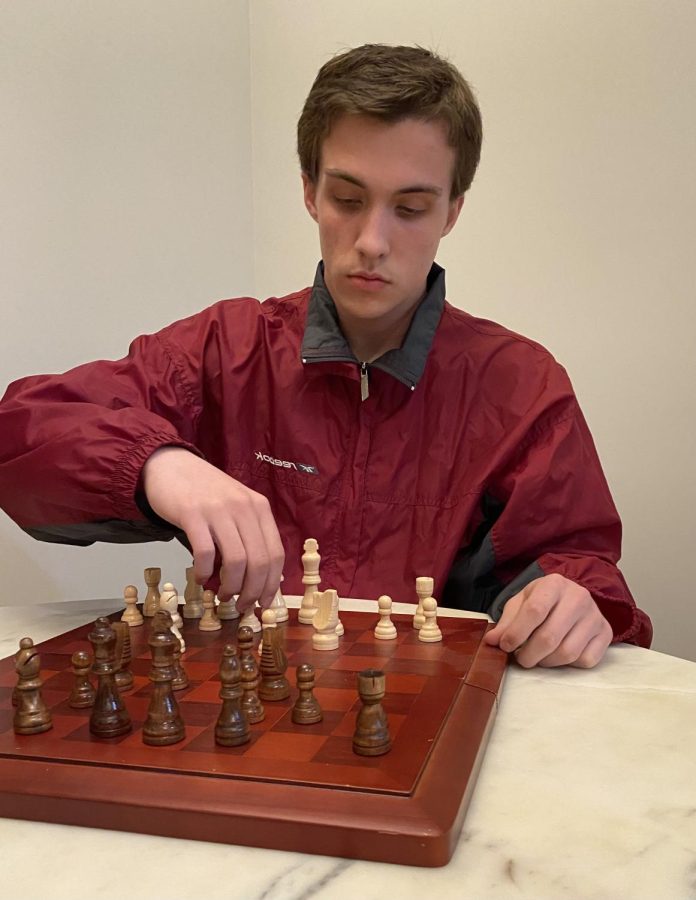Why chess is rewarding to learn
Connor Pyle play’s the Scotch game in response to Kace’s Kc6 move.
March 24, 2023
Today chess, a game that originated over 1,400 years ago, is more popular than it has ever been in history with over 605 million regular players worldwide. This then prompts the question: How does a game so old still maintain and continue its popularity over the ages?
This is a loaded question, however. Chess, in my mind, has been able to maintain its popularity because it is a draw both to those who enjoy the complexity of the game and those who enjoy challenging themselves, regardless the game is rewarding to those who attempt to learn it.
It is clear to me as a person who plays chess on a normal basis that there are 3 main reasons why I come back every day to play the game. The first being I enjoy how complex the game itself can be at times, secondly the game is infinitely replayable because no one game is the same and there will always be variation and style differences between games and finally third the challenge that the game presents to the player.
Chess a game with a seemingly simple objective of capturing the opponent’s king at first seems straightforward, however for new players this can be a daunting task. This can be fixed as players progress and learn because all players with much practice can improve greatly on their game. It is this improvement one feels as they climb the ranking system in chess that is so rewarding. You feel as if you improve not just in winning, but also understanding why you lose and the mistakes that you make shape you into a better player.
The game is also seemingly infinite in terms of unique games; Experts estimate that there are around 10100 possible unique games possible. This means regardless of skill level if you are to play games on a regular basis you are statistically highly likely to play a game that has never been played before. This element of the game for me is significant because it’s interesting that you get to be the first player to play a specific game; and although certain chess openings simplify the game and in turn position, there is still an aspect of freshness that accompanies each and every game.
Any game played between two people is by definition competitive and chess is no exception. It is this competition in chess that drives not only the desire to win but also the creativity that the game is known for. This competitive principle forces people to adapt to situations and use critical thinking skills, improvisation and correct strategy in order to win. I love the competitiveness of the game because it pushes not only me but also all those who play on an intermediate level and beyond to improve and hone their skills.
These three aspects shape chess into the game it is today so if you are a person who enjoys challenging yourself, competition and critical thinking there is no better way to achieve these goals while also having fun doing it.





![Mrs. Miller works in the guidance office. With all the many duties of her position she is working as the secretary for the guidance office. "[She] may change every period to a different class," Principal Scott Hinton said.](https://blueacemedia.org/wp-content/uploads/2024/09/sub-photo-1200x869.jpg)





























































































